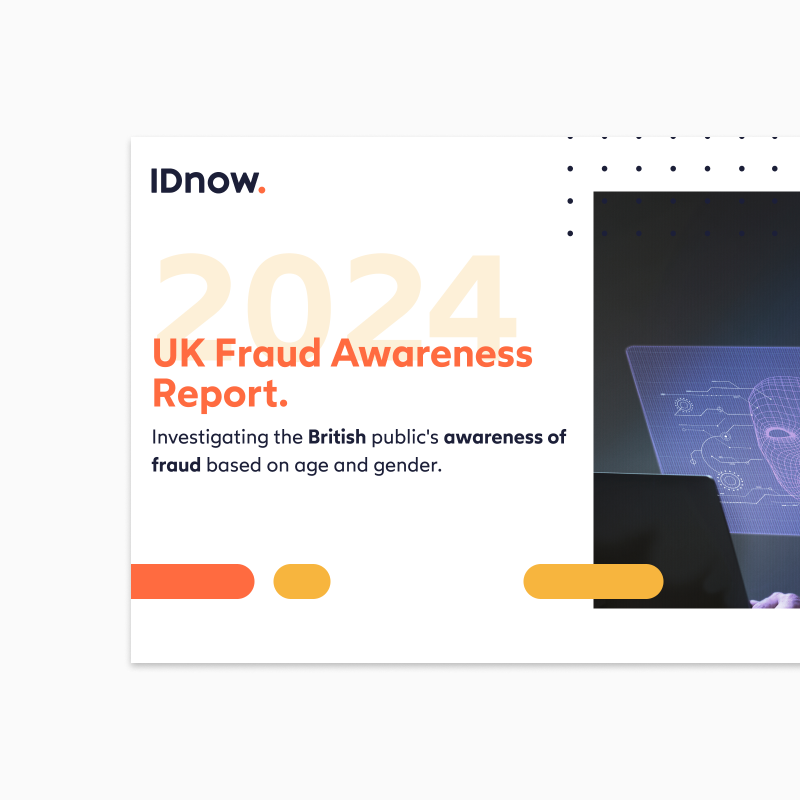We explore some of the challenges our customers faced in 2024 and how they plan to tackle fraud in 2025.
By the end of 2024, more than 70 billion identity verification checks will have been made. In a world of just 8 billion, these numbers appear absolutely staggering.
However, when you consider how frequently people have their identity verified in this ‘always on, always connected’ world, the number is perhaps not as high as it would originally seem.
Nowadays, people have their identity verified and reverified without giving it much thought, undergoing data and document checks and age verification to use most digital services. In the not-too distant past, if you wanted to open a bank account, rent a vehicle or use a particular service, you would invariably be required to visit a brick-and-mortar store, clutching at least two forms of paper identification. Even then, the process was unlikely to conclude on the same day, with prospective customers often needing to wait a further series of days until their identity could be verified and they could access said service.
Nowadays, thanks to a range of automated and in-person identity verification services, this can be done in a matter of minutes, affording unrivalled convenience that many would have thought impossible just a decade ago. Striking a balance between offering an identity verification process that is secure for the business but convenient for the customer is essential. Without it, the business runs the risk of fraud attacks, which can impact its reputation and bottom line and ultimately lead to customer abandonment.
To discover the challenges that our customers have been facing in 2024 and what next year may look like, we conducted the inaugural IDnow Customer Survey 2024, featuring a number of clients across the UK, France and Germany. Respondents held a variety of positions from Product Managers to Head of Compliance.
Top 3 identity verification challenges in 2024.
- Increasing operational efficiencies and cutting costs (53%).
- Keeping conversion rates high (47%).
- Managing the volume and wide range of different types of fraud attacks / Keeping up with technological developments in fraud and identity verification (both 41%).
How our customers tackled fraud in 2024.
The costs of a business falling victim to fraud go way beyond financial. Yes, fraud impacts the bottom line, but it can also have a disastrous effect on company reputation and lead to customers losing trust in the brand.
To safeguard against this and prevent fraud, six out of 10 of our customers said they had conducted training sessions to enable staff to better identify internal and external fraud risks, while 53% said they had invested in new fraud prevention technologies. Just over a third (35%) said they had deployed multi-layered identity verification procedures, including data, biometric and database checks, such as for PEPs and Sanctions.
UK Fraud Awareness Report 2024

Preparing for fraud challenges in 2025.
When asked what the biggest fraud challenge for the year ahead was, an equal number of respondents (59%) cited reputational damage from fraud attacks and the financial cost of tackling and managing fraud. This was followed very closely by just over half (53%) who said they were concerned about how a lack of consumer awareness could lead to increased fraud risks.
Regarding the types of fraud that customers were most concerned about, 24% of businesses seemed to be most worried about social engineering, such as phishing, while around the same number cited ID document forgery and manipulation. To a lesser extent, customers said that money mules and identity theft (both 18% each) were the primary fraud challenges in 2025. Interestingly, just 12% cited deepfake attacks (despite it becoming an increasingly commonplace method), while just 6% of respondents cited insider threats as the top fraud challenge for 2025.
When asked how they planned to fight fraud in 2025, the majority of respondents ranked effective training and upskilling staff as the most important action to be taken, followed by access to AI technologies. Internal appointment of new people responsible for fraud fighting and risk mitigation was considered the least important action to take.
Interestingly, while some businesses have already deployed multi-layered anti-fraud solutions this year, a large majority of businesses expect it to be very important (70%) and somewhat important (12%) going forward. Only 6% claimed that it was not important to them at all.
At IDnow, we recognize the importance of keeping up to date with the latest developments and techniques in fraud and run regular training sessions and courses for our clients.
To learn more about how our industry-leading fraud prevention technology can help you fight fraud to safeguard against fake IDs, synthetic identities, deepfakes, social engineering, money mules and more, check out our blog on the role of identity verification in the fight against fraud.
Discover the differences in public perception of fraud and identity verification in France and the UK in our blog, ‘France vs UK. Which country knows more about fraud?’
Or for more insights from industry insiders and thought leaders from the world of fraud and fraud prevention, check out one of our interviews from our Spotlight Interview series below.
- Jinisha Bhatt, financial crime investigator
- Paul Stratton, ex-police officer and financial crime trainer
- Mayur Joshi, Founder of Indiaforensic
- Or, discover all about the rise of social media fraud, and how one man almost lost a million euros to a pig butchering scam in our blog, ‘The rise of social media fraud: How one man almost lost it all.’
By

Jody Houton
Senior Content Manager at IDnow
Connect with Jody on LinkedIn



